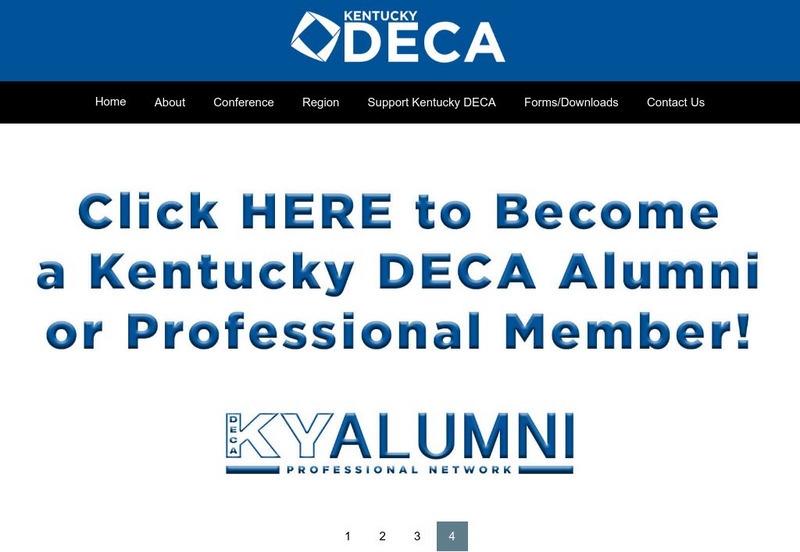Council for Economic Education
Econ Ed Link: What Is Competition?
Explore the world of competition in business through this informative lesson plan.
Council for Economic Education
Econ Ed Link: Competition Pizza
A lesson that teaches about competition in the marketplace that uses student-gathered information about businesses where they live. Includes student activities and links to national standards in economics and personal finance.
Council for Economic Education
Econ Ed Link: Business Ownership: The Franchise Option
Students explore an alternative to starting a business from scratch- investing in a franchise. They begin by considering the pros and cons of a franchise and whether this form of business is an option that would fit their personality and...
Digital History
Digital History: Business Organizations [Pdf]
After a brief description of various ways that businesses are organized, find out about the monopolies formed in the age of big business in the late 19th century, focusing primarily on Standard Oil. [pdf]
Council for Economic Education
Econ Ed Link: History of Monopolies in the United States
Monopolies in the United States have existed in many forms. When a business dominates a market, its market power makes it a monopoly. How these businesses use their market power will determine the legality of the monopoly.
Digital History
Digital History: The Sherman Anti Trust Act and Standard Oil [Pdf]
As the influence of large corporations spread in the age of big business, push-back was inevitable. Read about the Sherman Anti-Trust Act and the government's attempts to rein in the laissez-faire attitudes of corporations and the lack...
Other
Kentucky Association of Deca
This site serves as a resource for marketing teachers and students. The organization's goals, officers, and events are given, as well as information on competitions and resources.
Other
Inc.: Pointers on Putting Together Your Business Plan
Prepration is needed before a business plan is written. This article, written in April 2000, will give tips on what to keep in mind when writing a plan.
Council for Economic Education
Econ Ed Link: What Happened to Railroads?
Between the Civil War and World War II, railroads were one of the nation's most important businesses and an integral part of people's lives. In this lesson, students assume the role of detectives investigating why the rail companies...
Other
Wall Street Journal: Mc Donald's Launches New Ads, Hoping to Tap Goodwill [Doc]
This article discusses McDonald's new ad campaign in 1997 to compete against Burger King, Wendy's, and other restaurants in a very competitive market. (10/02/1997)
Council for Economic Education
Econ Ed Link: The Collapse of Corporate Giants: The New Dr. Evils?
This lesson was inspired by an article in "Fortune" magazine, "Why Companies Fail," May 27, 2002. Its focus is on the relationship of business ethics to business bankruptcy or near failure. Students participate in a simulation by...
Council for Economic Education
Econ Ed Link: Did You Get the Message?
Advertising is the primary tool used by businesses to tell consumers about the goods and services they sell in the marketplace. Businesses also use advertising to try to convince consumers to buy what they are selling. Advertisements do...
Council for Economic Education
Econ Ed Link: Deceptive Advertising: Crossing the Line
Businesses use advertising to tell consumers about the goods and services they are selling. Businesses hope that their advertisements will convince people to buy their products. In this lesson, students examine the ground rules for...
Federal Reserve Bank
Federal Reserve Bank of Philadelphia: Ten Mile Day [Pdf]
Using the book, Ten Mile Day, by Mary Ann Fraser, this lesson helps children understand division of labor, competition, and incentives in the workplace.
Council for Economic Education
Econ Ed Link: Be an Ad Detective
Every day, students are bombarded by advertising. They cannot escape it. But marketers realize that many ypung people are becoming very good at tuning ads out. Businesses thus are becoming more creative in their communication with...


